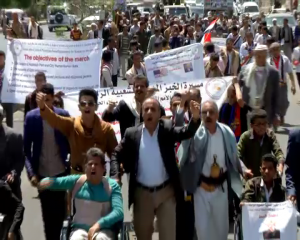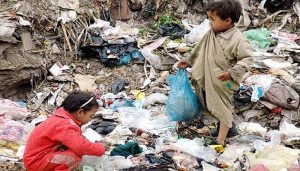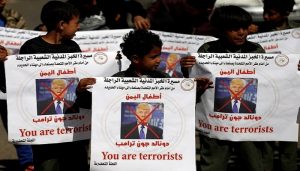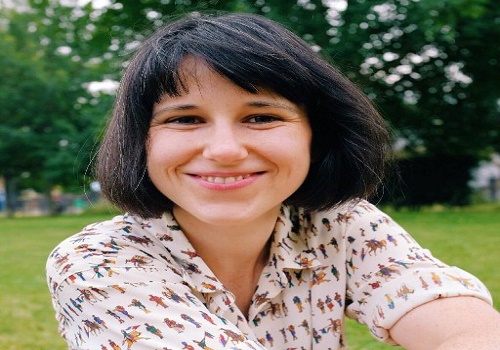As the world ignores Yemen, war tears apart the ancient country’s social fabric
‘To help us is to end the war, not send shipments of guns, and hold a “sorry” conference every other year’, Yemenis say as diplomats gather for one-day aid summit in Geneva
More than 10,000 dead. Approximately 19 million people in desperate need of humanitarian aid, including 7.3 million on the brink of famine. The figures in Yemen’s two-year-old civil war are staggering – but they don’t convey the daily suffering of civilians.

“The numbers do not show the human aspect. Unlike Syria, where news about the devastation and death makes it to the media very quickly, Yemenis suffer in silence,” said Sherine El Taraboulsi-McCarthy, a research fellow at the Overseas Development Institute.
With the country’s airports as well as land and sea borders controlled by neighbouring Saudi Arabia, no Yemeni refugees are fleeing to Europe in their thousands. Without any perceptible impact on the West or overspill of violence, the conflict has remained largely invisible.
The UN estimates $2.1bn (£1.6bn) is needed to pull Yemen back from the brink of collapse, but before humanitarians and diplomats gathered in Geneva, Switzerland, for an aid summit on Tuesday, just 14 per cent of that had been pledged by donor governments to date.
read more
As the fate of 27 million people was discussed by foreigners sitting around the chamber at the UN’s European headquarters, Yemenis trapped by the war struggle on with normal life as well as they can.
Often reduced to cliched descriptors such as ‘the poorest country in the Middle East’, Yemen’s cultural identity – created by its unique position at the crossroads between the Middle East and the African and Asian continents – is far richer and more complex than the reporting on its conflict suggests.
The modern state, created in 1990, has always been poor and plagued by war, but its people have proved their resilience.

Following the 2011 Arab Spring uprising against President Ali Abdallah Saleh, the 2013 National Dialogue Conference – which lasted for months and included dozens of parties as part of the reconciliation efforts – seemed to suggest the country was on the right path to political and economic reform.
People were hopeful. “After being on the brink of civil war, Yemenis negotiated an agreement for peaceful change, the only such in the region,” Jamal Benomar, the UN’s then special envoy, said at the time. “The National Dialogue established a new social contract and opened a new page in the history of Yemen.”
Shia Houthi rebels, al-Qaeda and other insurgents continued to chip away at the fragile peace, however, resulting in the toppling of the government after Houthis swept into the capital Sanaa in 2014.
While often portrayed as a proxy war between Tehran and Riyadh, Iranian influence over the Houthis is overstated. US intelligence believes Tehran advised the rebels not to assault Sanaa, and the insurgents’ long-term political goals are unclear.
Yet in the last two years, Saudi Arabia and its regional partners have used the spectre of Iran to justify an an extensive bombing campaign over the country at the request of the exiled, internationally recognized Yemeni President Abdrabbuh Mansour Hadi.
Much of the devastation has been caused by arms sold to the kingdom by Western states such as the UK and US – a move which officials within Barack Obama’s administration worried could amount to complicity in war crimes.
The Saudi economic strangulation, blockades on Yemen’s air and seaports preventing the import of food and medicine and the targeting of vital infrastructure such as roads and bridges – and in some cases civilian buildings such as hospitals and funeral gatherings – have contributed to the dire situation Yemenis are now facing.
read more
The Yemeni Foreign Ministry Calls on the Geneva Conference to Stop War on Yemen
It is painful to describe the things I have seen in recent months,” said Tawfeek Al-Ganad, a writer and historian who had just arrived in Beirut from Yemen. He went on to describe the targeting of journalists and civil society activists he knew who have been killed or abducted by Houthi sympathisers. “Not only are people starving. Those who try to alleviate the situation are prevented from doing so.”
Mr Al-Ganad spent three days travelling from Aden to Lebanon, where The Independent met him last week. After waiting for inspections at more than 20 different checkpoints, eventually Houthi rebels only let him leave on one of the three flights a day out of the country because his final destination was Lebanon – home to the Shia group Hezbollah.
His family is already out of the country – and despite his desire to help, he is not sure if he will return.
Mansour Rageh is Mr Al-Ganad’s colleague at the Sanaa Research Center and a key strategist at the Central Bank of Yemen. “Normally Yemenis are there for each other,” Mr Rageh said. “You can always borrow money or what you need from friends and neighbours.
“But there is no capital to lend. Salaries have not been paid and everyone is poor. It’s a cultural shift which is ripping at the very fabric of Yemeni society and changing how people treat each other.”

While welcome in the short term, aid such as the €116m (£99m) pledged in Geneva on Tuesday by the European Commission will not empower Yemen’s people to take control of their own futures.
Several Yemenis and other observers of the conflict The Independent spoke with expressed disappointment that voices from the country were not at the forefront of Tuesday’s conference – and that a political solution to the conflict wasn’t the driving factor behind talks.
“We need the UN to commit to a timelined peace process in Yemen now. Aid is useless as long as the war remains. To help us is to end the war, not send shipments of guns, and hold a “sorry” conference every other year,” said Farea al-Muslimi, a non-resident fellow at the Middle East Institute in Washington DC.
read more
Amnesty International Accuses Saudi Coalition of Violating Intl. Humanitarian Law in Yemen
“Saudi Arabia is going to make certain that Yemen does not completely break down, it will keep the country in a situation of constant need,” Ms El Taraboulsi-McCarthy said. “Their interest in Yemen is solely asserting leadership and power in the Arab world. Those points have not made it into the pledging conference and our discourse about Yemen at all.
“Yemenis don’t want aid: they want peace and the opportunity to rebuild their country for themselves.”
The views expressed in this article belong to the author and do not necessarily reflect the editorial policy of YemenExtra
The original source of this article is independent

